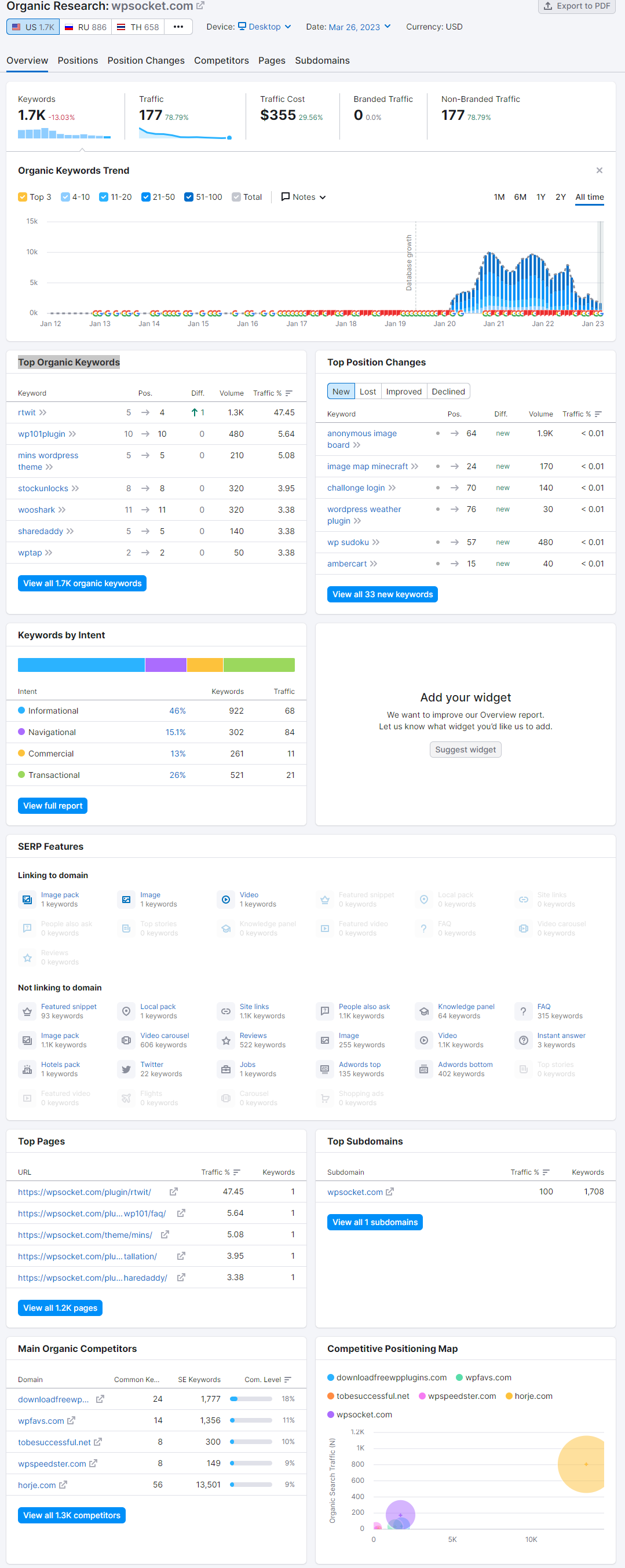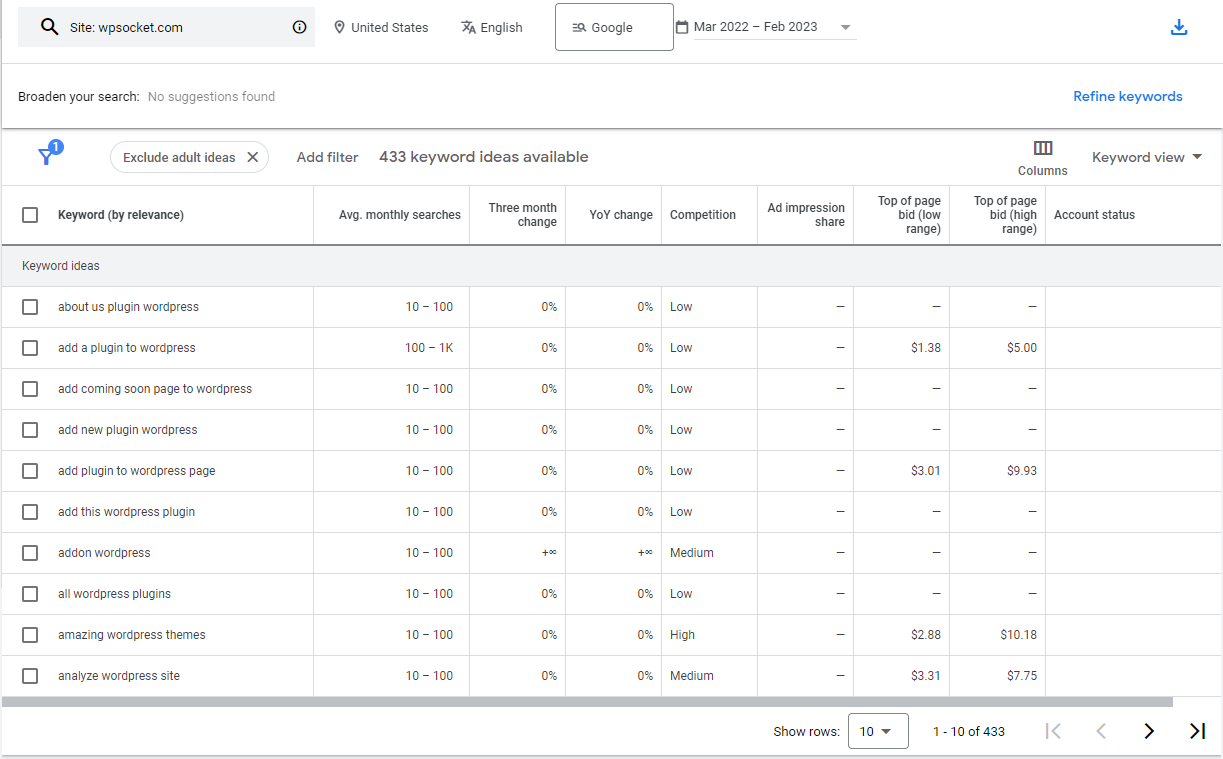Want to improve your search engine rankings and increase traffic to your website? Learn about keyword competition analysis and how it can help you achieve your goals
Now, businesses and industries of all sizes that are going online or trying to establish a position online are looking for the best methods to stand out in search engines, as the competition is too high for ranking on the first page of the search engine result page.
Among many methods, keyword competition analysis is one approach to staying at the top of search engines and surpassing your competitors. By analyzing the keywords your competitors aim for and ranking for, you will acquire valuable insights into your competitors' tactics and identify opportunities to improve your search engine visibility and content strategy.
So, what is keyword competition analysis, and why is keyword competition analysis important? Let's explore everything about keyword competition analysis in this blog.

What Is Keyword Competition Analysis?
Keyword competition analysis is a technique used to examine and evaluate the keywords that your competitors are using to rank in search engine results.
Keyword competition analysis offers valuable insights into your competitors' approaches and methods, which helps them get high search engine visibility in search engines. After assessing their keywords and plans, you can enhance your own search engine optimization (SEO) efforts.
However, many people make the mistake of limiting their analysis to simply identifying the same keywords that their competitors are using. In reality, the scope of keyword competition analysis is much broader than that.

Why Keyword Competition Analysis Is Important And What Are The Benefits
You might think that just doing keyword research and using a keyword monitoring tool can help you rank on search engines. That may work, but the position you'll gain on the search engine ranking page (SERP) won't be permanent since thousands of other people will try to outrank you from your search engine rank.
Identify high-opportunity keywords
By analyzing the competition for your target keywords, you can identify keywords with high search volume and low competition that you might not have even thought about or somehow missed during your keyword research process. These keywords represent opportunities to rank higher and drive more traffic to your website.
Understand user intent
Keyword competition analysis can help you understand the intent behind the keywords that users are searching for. Understanding user intent can then be used to create content that satisfies the user's intent and is more likely to rank higher in search results.
For example, if you're a business selling shoes and want to rank higher in search results for the keyword "running shoes," you could do a keyword competition analysis to see what other businesses or your competitors are doing to rank for that keyword. You might find that users searching for "running shoes" are also looking for information on the best running shoes for different types of feet or running styles from your competitor's websites.
Improve content quality
One of the best benefits of doing keyword competition analysis is that when you assess the top-ranking pages of competitors for your target keywords, you can understand what type of content is related to users. This can help you improve the quality of your own content and increase its chances of ranking higher in search engines.
Develop a backlink strategy
Keyword competition analysis can also help you understand the backlink profiles of top-ranking pages, such as from where they're getting backlinks.
This can inform your own backlink strategy and help you acquire high-quality backlinks.
Maximize ROI
Keyword competition analysis can help you maximize your return on investment (ROI) by identifying the keywords that are most likely to drive traffic and conversions and creating pay-per-click campaigns.
By focusing your resources on these high-opportunity keywords, you can achieve your business goals more effectively and efficiently.
Help with content strategy
Finally, conducting keyword competition analysis is a crucial part of developing the overall content strategy for your website because not only do you know about keywords that your competitors are targeting, but you'll also identify content gaps; you can create content that fills those gaps and establishes your authority in your industry!

Factors That You Should Consider While Doing Keyword Competition Analysis
Performing keyword competition analysis is super-easy; all you'll need is a search engine optimization tool to find and start analyzing your competitors. But, there are some factors that you should consider while doing keyword competition analysis.
Those factors are:
Keyword Relevance
The first factor to consider is the relevance of the keyword to your website, and your competitors are crucial. A keyword may have low competition, but if it is not relevant to your website, it won't drive any meaningful traffic. That's why it's essential to select keywords that are relevant to your business or website.
Keyword Search Volume
A keyword with a high search volume will likely have higher competition, making it harder to rank for. On the other hand, a keyword with low search volume may have less competition, but it may not drive enough traffic to your website. So, when doing competitors' keyword analysis, you need to find a balance between search volume and competition level.
Keyword Difficulty
Keyword difficulty is a metric that indicates how hard it is to rank for a specific keyword. While doing keyword analysis on competitors analysis, try to find out keywords with less difficulty or below 50 if you have a new website or want to rank faster.
By analyzing the keyword difficulty, you can determine whether it's possible to rank for a keyword and plan your strategy accordingly.
Select your competitors wisely
Though you might know who your top competitors are, this is also another crucial step for keyword analysis because not all competitors are beneficial for you!
For a particular niche, you'll find hundreds or sometimes thousands of competitors who are trying their best to rank on search engine result pages (SERP), and there's no reason for you to perform keyword analysis on them.
So, what should you do? Try to find the top-ranking competitors performing well on search engines.
What Are The Best Tools For Keyword Competition Analysis
Right now, there are hundreds of search engine optimization tools available which you can also use for analyzing competitors' keywords.
Some of the best tools for keyword competition analysis are:
SEMrush
SEMrush is one of the most popular SEO tools in the market. It has a powerful competitor analysis feature that allows you to analyze your competitor's Top Organic Keywords, their keyword rankings, website traffic, search volume, and other crucial information.

To use SEMrush free for 14 days, Click Here.
Google Keyword Planner
Google Keyword Planner is a free tool that can help you identify the keywords your competitors are using. With Google Keyword Planner, you can enter your competitor's website and get a list of the keywords they are targeting.
But with Google keyword planner, you'll get limited information about your competitors which might not be that much effective for competing with others.

SpyFu
SpyFu is an SEO tool that specializes in competitor analysis. With SpyFu, you can get insights into your competitor's keyword rankings, ad copy, and ad spending. SpyFu also has a unique feature called Kombat, which allows you to compare your website's performance with your competitors.

How To Start A Keyword Competitor Analysis
Starting analyzing competitor keywords can be confusing as there are many ways to do keyword analysis.

Gather competitor keyword data and relevant topics using tools
Use tools to gather data and relevant topics your competitors are ranking for. These tools allow you to enter a competitor's website and see which keywords they are ranking for and their position in the search results.
We recommend using tools as they will save you time and give insights on different metrics that will be useful.
Analyze the data
Once you have gathered the data, analyze it to identify competitors' keyword patterns and trends. Look for keywords your competitors are ranking well for and consider targeting them. When analyzing the data, remember to consider search volume, competition, and relevance factors.
Develop a strategy
Finally, develop a keyword strategy based on your analysis that targets the most relevant and high-performing keywords. This will help you compete with your competitors and improve your search engine rankings.
What Types Of Keywords Should You Target For Better Ranking?
When analyzing the keywords of your competitors, it's important to consider the types of keywords you want to use. There are three types of keywords: long-tail, mid-tail, and short-tail.
Long-tail keywords are longer and more specific. They usually have less competition and can be easier to rank for. For example, instead of "shoes," you could use "women's running shoes for flat feet."
Mid-tail keywords are in between long-tail and short-tail. They're more specific than short-tail but have more searches than long-tail. An example is "running shoes for women."
Short-tail keywords are broad and have a lot of searches. They can be hard to rank for because there's a lot of competition. An example is "shoes."
So, which types of keywords would be better for you to compete with your competitors so you can make a position for your website on search engines? Using long-tail and mid-tail keywords is a good choice because they can be easier to rank for and bring in relevant traffic. You can also use short-tail keywords, but they can be harder to rank for.

Frequently Asked Questions
Can I outrank my competitors by targeting their keywords?
Of course! It is possible to outrank your competitors for their target keywords, but it can be challenging, and the result depends on several factors, including the competitiveness of the keyword, the strength of your website and content, and the quality of your SEO strategy.
Is competitor keyword analysis important for an e-commerce website?
Yes, competitor keyword analysis is the most important aspect of your e-commerce SEO strategy, as it creates the foundation for everything else you do. With the increased e-commerce websites without competitor keyword analysis, ranking on search engines will be tough.
Can I use keyword competition analysis for PPC advertising as well?
Yes, keyword competition analysis can be useful for PPC advertising as well
Is keyword competition analysis also important for local SEO?
Yes, keyword competition analysis is also essential for local SEO as well since you can identify the keywords your local competitors are targeting




